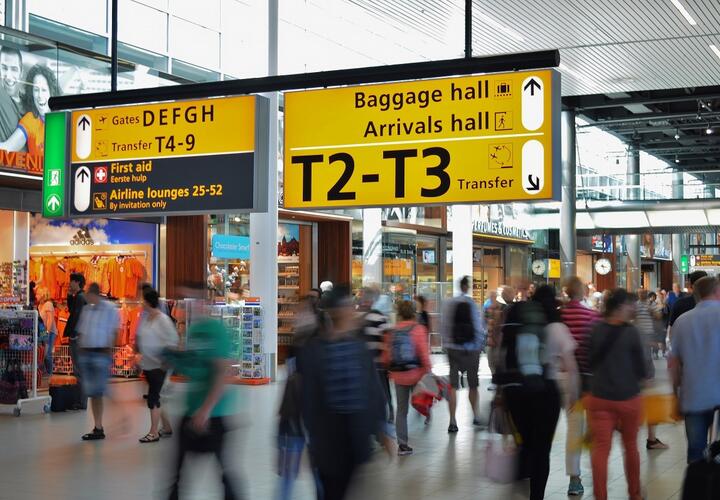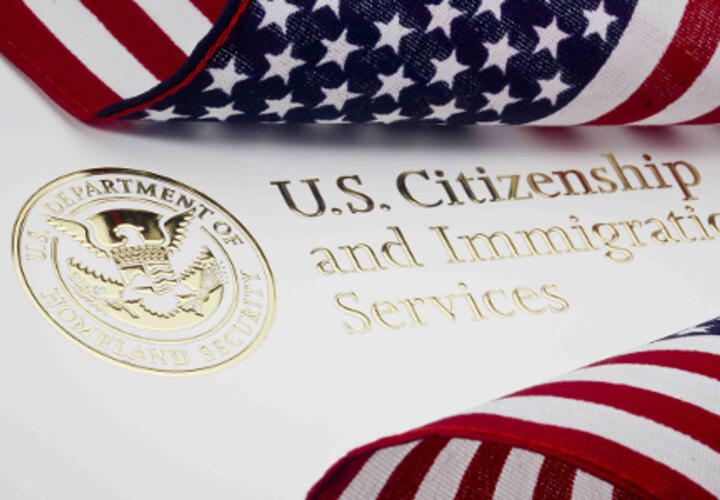Whether you are traveling to the U.S. for the first time or re-entering, please review the information below carefully. At a minimum, you will need a valid passport, valid visa (except Canadian citizens) and a valid immigration document. Click the box below for details about your specific immigration status. If you have questions or concerns, check with your OISS adviser before you make travel plans. If you had a difficult time entering or re-entering the U.S., please let us know.
You can find detailed information below regarding what documents you need to carry with you, what you need to be aware of when entering the U.S., and what the I-94 record is and why it is important.
Information Specific to Visa Category
F-1 Travel Document Checklist
- Valid, unexpired (Section #5) Form I-20 - also referred to as “Certificate of Eligibility for Non-Immigrant Student Status” - with an OISS travel signature on the bottom of page 2. This OISS travel signature should not be older than 12 months and can be used for multiple entries. See note below for how to obtain a new travel signature.
- F-2 dependents must have their own I-20 forms meeting the same criteria above
- Valid passport. Your passport must be valid for a minimum of six months into the future at the time of re-entry to the U.S. Some countries have an agreement with the U.S. that exempts their nationals from the six-month rule for U.S. entry purposes only.
- Valid F-1 or F-2 visa from a U.S. embassy (except for Canadian citizens who are not required to have a visa)
- There are additional documents needed to travel after graduation using F-1 OPT.
Please refer to the Arriving in the U.S.: Immigration Inspection page for a full list of all documents.
Obtaining a New Travel Signature
Please contact your designated OISS adviser, and they will electronically send you a new I-20 with a travel signature.
J-1 Travel Document Checklist
- Valid DS-2019 (not expired in Section #3) with an OISS travel signature in the Travel Validation section at bottom. The OISS signature should not be older than 12 months and is valid for multiple entries to the U.S. See note below for how to obtain a new travel signature.
- J-2 dependents must have their own valid DS-2019 forms
- Valid J-1 or J-2 visa from a U.S. embassy (except for Canadian citizens who are not required to have a visa)
- Valid passport. Your passport must be valid for a minimum of six months into the future at the time of re-entry to the U.S. Some countries have an agreement with the U.S. that exempts their nationals from the six-month rule for U.S. entry purposes only.
- If graduated and authorized for Academic Training, a copy of the OISS authorization letter
- If Yale University is not your J-1 program sponsor, please contact them directly (e.g., Fulbright)
Please refer to the Arriving in the U.S.: Immigration Inspection page for a full list of all documents.
Obtaining a New Travel Signature
-
Please contact your designated OISS adviser, and they will electronically send you a new DS-2019 with a travel signature.
Transit Visas When Changing Planes
If your travel plans require a change of planes in a third country, you must check to see if you need a transit visa. Some countries (including the U.S.) require an entry or transit visa, even if you are only changing planes and resuming your travels after a brief time. Before purchasing your ticket, make certain you are aware of any travel requirements or restrictions.


